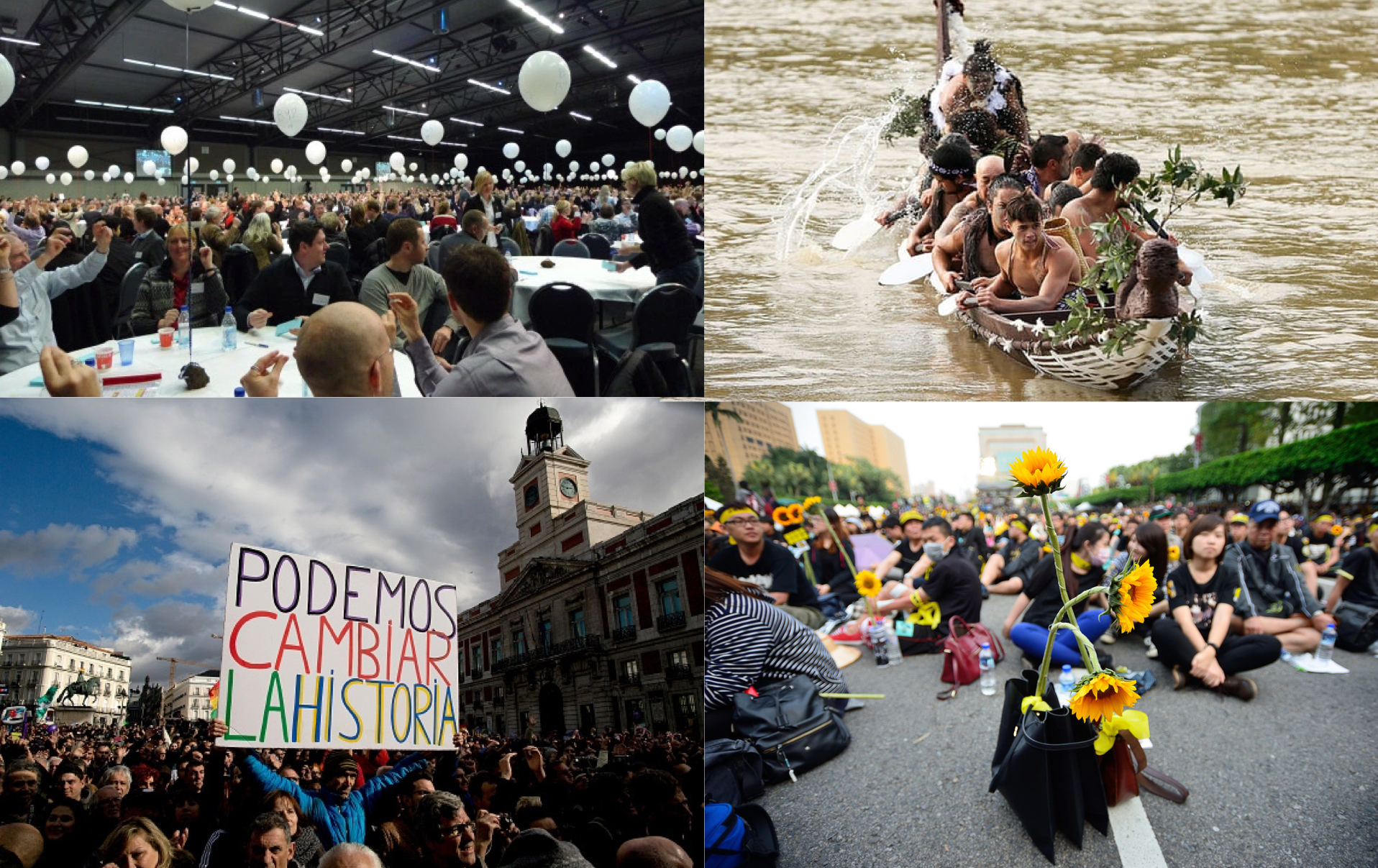Over the past six years I’ve had the pleasure of working with many great people in the P2P Foundation and the commons movement. A large part of this life thread has to do with new forms of governance. As I’ve stepped through various projects, the same issue of governance has come up again in again – however always with variations, always contingent on context.
It is such a crucial time in human history. It feels as if we are capable of transforming our world, and at the same time we are at the edge of the abyss. In my analysis, governance is at the heart of the great challenges we face – whether or not our societies can protect and create that which we mutually depend on for our survival and wellbeing, our multifaceted commons. We are at a crossroads. Will we live in a world of oligarchs, where antiquated systems, monied interests, elites and corruption undermine our capacity for wise and effective social navigation? Or will the aspirations for distributed, participatory and contributory decision-making create a world of deep democracy and transparency where citizens have real lateral power in forging equitable and sustainable pathways?
Some of my initial ideas on this were put together in this book chapter on the Futures of Governance. Overtime with others I’ve begun to formulate some more general ideas for how governance works across commoning activities, such as through a recent paper co-authored with Michel Bauwens on an Ecology of the Commons.
This is a shared journey and an ongoing exploration for all of us in this movement. Together with Dr. Michelle Maloney, founder of the Australian Earth Laws Alliance and the New Economy Network Australia (NENA), we have developed this one day course called “Transforming Governance for People and Planet” as both an introduction to thinking about the futures of governance and democracy, and as an opportunity to work on synthesis. How do we make sense of the many contexts, threads, innovations in a way that can provide orientation and empowerment in terms of how we see ourselves, individually and collectively, as agents of change?
So in the course we will explore the outline of shifts taking place from a global perspective, current challenges, and the many new innovations, experiments and pathways that are harbingers of change. From the community meeting to the office and work environment, to our local municipal, state and federal systems, and to the global system, we know the context has shifted and the stage has been set for dramatic changes. We will ask the question to participants, at what scale and where do we want to play? The course will provide an overview of the big trends in governance and provide ways in which participants can consider how they want to participate and shape the future. The course intents to bring forth ideas for transforming governance in plain language, with strategies that anyone can use to empower themselves and their communities.
This workshop will present and explore:
- the idea of the “commons” as a framework for rethinking governance;
- how the commons framework provides answers to the critical challenges we face in areas such as: resource management, ecological protection / rights of nature, addressing oligarchy, protecting digital / knowledge commons, humanising and democratising our work and community life, etc;
- an overview of critical historical shifts that bring into relief the great transitions we are experiencing in the early 21st century;
- examples from around the world that demonstrate transformations in governance, and which point to new futures – the many new innovations, experiments and pathways that are emerging around the world in response to our challenges;
- a deep questioning of when our democracies protect and build the commons, and when they undermine them, and what strategies we might take as societies to ensure healthy democracy and the protect and build our commons.
Specific topics that will be covered include:
- bioregional governance
- commons governance
- workplace democracy and decentralised decision making
- liquid democracy (and other e-democracy systems)
- rights of nature / Earth jurisprudence
- urban collaborative governance
- peer to peer / digital commons governance
- participatory and contributory democracy
- overcoming the challenges of oligarchy / plutocracy
- global / planetary governance
- anticipatory governance
The workshop will be run as a mix of presentations, audio-visual content, interactive discussions, games and self-guided reflection.
By the end of the workshop, participants will understand the big shifts and issues in governance, and the ways in which they can participate in our great transitions and in shaping the future.
ABOUT THE WORKSHOP PRESENTERS
- Dr. Jose Ramos, writer, futurist and director of Action Foresight, brings over 15 years’ experience writing about cultural, political and economic change and designing, teaching and facilitating courses on social change, strategic foresight, commons governance and socio-political transformation.
- Dr Michelle Maloney, lawyer and National Convenor of the Australian Earth Laws Alliance (AELA) has been working for 25 years at the intersection of ecological and social justice, and is passionate about building Earth centred law, governance and ethics.
Registration info is HERE
* Several scholarships are available for students and others who wish to attend. Contact us for details.
For more information: Jose Ramos – [email protected]

